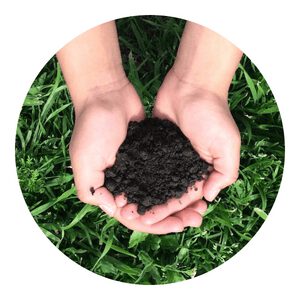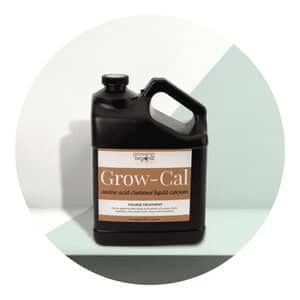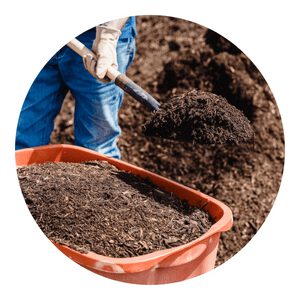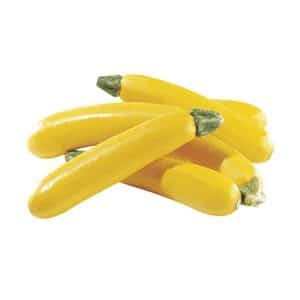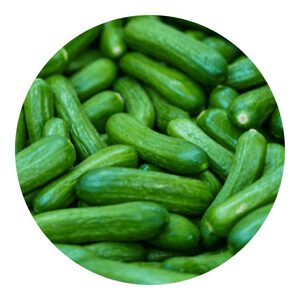Liquid Organic fertilizer for vegetables
Organic farming has become increasingly popular as people look for ways to reduce their environmental impact and improve their health.
One of the most effective methods of organic farming is to use liquid organic fertilizers for vegetables.
Liquid organic fertilizers offer numerous benefits compared to traditional dry granular fertilizers, including improved soil structure, enhanced nutrient availability, reduced leaching, and increased microbial activity in the soil.

Liquid Fertilizer Menu
What is Liquid Organic Fertilizer?
Liquid Organic Fertilizer is a type of fertilizer that provides essential nutrients to vegetable plants while helping soil structure, aeration and water drainage.
It’s made up of organic matter such as compost and manure, blended with other materials like fish emulsion or kelp extract.
The mixture is then heated and processed until it turns into a liquid form that can easily be absorbed by the roots of vegetable plants.
Organic fertilizers are an excellent choice for gardeners because they don’t contain any chemical additives.
This means you can use them without worrying about their effects on your vegetables or the environment.
Additionally, since these fertilizers are slow-release formulas, they provide more consistent nutrition over time than fast-releasing inorganic fertilizers do.
Benefits of Using Liquid Organic Fertilizer
Liquid organic fertilizer has been used for generations to help vegetables grow bigger and better.
It is a natural way to nourish soil, improve its structure, and bring out the best in your garden.
Organic fertilizers are derived from plant and animal matter, rather than synthetic chemicals.
This makes them more sustainable for both the environment and your wallet!
Organic fertilizers also provide essential nutrients such as nitrogen, phosphorus, potassium, iron, zinc, manganese and other trace minerals that are necessary for healthy vegetable growth.
Unlike synthetic fertilizers that can burn or damage roots if over applied, liquid organic fertilizers break down slowly in the soil making them much safer to use around delicate plants.
Organic fertilizers also stimulate beneficial microorganisms in the soil which further increase nutrient availability for plants.
Fresh, liquid organic fertilizer for our greens, Let's watch it work so that our crops can glean. Using natural materials from the land, We can ensure soil will never lack in grand. From farmed plants or fish and kelp in seas, These fertilizers come to lend us ease. Applying it to your garden plots and patches, Your bountiful harvest will surely catch all the matches!
Chappy The Gardener
Types of Liquid Organic Fertilizers
Liquid organic fertilizers are a natural and effective alternative to synthetic fertilizers.
They provide nutrients to plants without the use of harsh chemicals or synthetic additives, making them an increasingly popular choice for vegetable gardeners.
Organic liquid fertilizer is made from plant, animal, mineral and microbial sources, each providing different levels of nutrition.
There are several types of liquid organic fertilizer available on the market today, each with their own unique benefits.
One type is manure-based liquid fertilizer, which contains essential nitrogen and other micronutrients that are readily absorbed by plants.
It’s commonly used to promote rapid growth in vegetables such as tomatoes and squash.
Fish emulsion is another popular option; it’s made from fish by-products and supplies phosphorus, potassium and other nutrient-rich elements that help support healthy root development in leafy greens like lettuce and kale.
Click To Fertilizer
How to Make Home-made Liquid Organic Fertilizer
Making your own liquid organic fertilizer is a great way to add necessary nutrition to your plants without relying on store-bought chemicals.
Organic fertilizers are not only more natural and safer for the environment, but they are also more cost-effective and sustainable than their synthetic counterparts.
To get started, gather all of the ingredients you will need: compost, kelp meal or neem cake, molasses, fish emulsion or seaweed extract, water and an aerator pump.
Begin by combining one cup of compost in five gallons of water in a large bucket or container.
Let this mixture sit for three days with an aerator pump running constantly in order to help it break down properly.
Applying and Storing Liquid Organic Fertilizers
Applying and Storing Liquid Organic Fertilizers is the key to having a successful vegetable garden.
Liquid organic fertilizers are an efficient way to nourish your plants, as they provide nutrients that are quickly absorbed by the plants’ roots.
These fertilizers can be applied directly to the soil or mixed into water for foliar applications.
It’s important to understand how to properly apply and store liquid organic fertilizer in order for it to be effective.
When applying liquid organic fertilizer, make sure you follow the manufacturer’s instructions carefully so you don’t over-apply or under-apply it.
If you’re using a container for storage, then it should have a tight-fitting lid and be kept away from extreme temperatures such as those found in basements and attics.
Common Mistakes with Liquid Organic Fertilizers
Organic fertilizer is a great way to provide essential nutrients for vegetable gardens.
However, it’s important to be aware of common mistakes when using liquid organic fertilizer in order to avoid both under and over-fertilizing.
Failing to consider the pH balance of your soil can result in an imbalance that affects the health of your plants and crops.
Additionally, knowing when and how much fertilizer to apply is key for successful results.
One mistake with liquid organic fertilizer is not considering the nutrient needs of the specific vegetables you are growing.
Different vegetables have different quantity requirements for various nutrients, meaning that one type of liquid organic fertilizer may not be suitable for all types of vegetables you’re growing in your garden.
Over-applying or applying too frequently can also cause nutrient deficiencies or burn the foliage and roots due to excessive mineral concentrations in the soil.
Benefits of Liquid Organic Fertilizer for Vegetables
Organic gardening is becoming increasingly popular these days, but not everyone knows about the many benefits of using liquid organic fertilizer for vegetables.
Liquid organic fertilizer is an excellent way to provide vital nutrients to your vegetable garden and maximize its productivity. Here we explore some of the major advantages that liquid organic fertilizers have over synthetic chemical fertilizers.
Liquid organic fertilizers are natural and environmentally friendly, making them a great choice for eco-conscious gardeners.
They are derived from plant products like alfalfa meal, fish emulsion or compost tea, so there’s no risk of introducing harmful chemicals into your garden soil.
Furthermore, liquid organic fertilizers don’t contain salts which can easily build up in the soil when synthetic chemical fertilizers are used excessively.
Liquid Organic fertilizer for vegetables online
The rising demand for organic vegetables has necessitated the use of organic fertilizer to ensure their growth.
Liquid organic fertilizer is a great choice as it is easy to apply and provides essential nutrients to help plants thrive.
For those looking to purchase liquid organic fertilizer online, there are many options available.
Liquid organic fertilizer contains natural ingredients such as plant-based proteins, humic acids, and trace minerals that provide an abundance of micronutrients necessary for healthy vegetable growth and production.
It also helps reduce soil erosion and improves water retention, making it an ideal choice for vegetable gardens in regions with limited access to water or nutrient-rich soils.
Additionally, liquid fertilizers can be easily applied using a spray bottle or hose attachment, allowing even coverage over large areas quickly and effectively.
In conclusion,liquid organic fertilizer has been proven to be a viable option for fertilizing vegetables.
It is an affordable and environmentally friendly alternative to traditional chemical fertilizers, and it provides essential nutrients for plants without the risks associated with other types of products.
With its numerous benefits, liquid organic fertilizer can help ensure that your vegetable garden remains healthy and productive throughout the growing season.
For those looking for an all-natural way to keep their garden lush and green, this type of fertilizer may be the perfect choice.
Organic Fertilizer FAQ
Organic fertilizer is made from natural materials that improve the quality of your soil, such as manure, compost, and leaves. Synthetic fertilizer is made from chemicals that can harm your soil, plants, and animals. Here are four reasons to choose organic fertilizer over synthetic:
1. Organic fertilizer improves the quality of your soil. Over time, synthetic fertilizers can break down the structure of your soil, making it harder for roots to penetrate. This can lead to water runoff and soil erosion.
2. Organic fertilizer is safer for your plants. Chemicals in synthetic fertilizers can burn your plants’ roots, especially if you use too much or apply them during hot weather.
3. Organic fertilizer is safer for wildlife. Animals can be harmed by eating plants that have been treated with synthetic fertilizers.
NPK stands for nitrogen, phosphorus, and potassium, which are the three essential nutrients that all plants need to thrive. NPK fertilizer is a type of fertilizer that contains these three nutrients in varying proportions, depending on the specific formulation.
Nitrogen is responsible for promoting leaf growth, phosphorus helps with root development and flowering, and potassium aids in overall plant health and vigor.
By using NPK fertilizer, gardeners can ensure that their plants are getting the right balance of nutrients to grow healthy and strong.
Fertilizers are important for plant growth and development. They provide essential nutrients that plants need to survive and thrive. Fertilizers can be organic or inorganic, and each has its own benefits and drawbacks.
Organic fertilizers are made from natural materials like compost or manure. They release nutrients slowly, so they need to be applied more often than inorganic fertilizers. However, organic fertilizers improve soil health and help build up beneficial microbes that support plant growth.
Inorganic fertilizers are made from synthetic materials like nitrogen, phosphorus, and potassium. They release nutrients quickly, so they don’t need to be applied as often as organic fertilizers. However, inorganic fertilizers can damage soil health and harm beneficial microbes if they’re not used carefully.
When it comes to fertilizers, the three key nutrients are nitrogen (N), phosphorus (P) and potassium (K). These are typically represented by the NPK value on the fertilizer package. For example, a 10-10-10 fertilizer has an NPK value of 10-10-10 and contains 10% nitrogen, 10% phosphorus and 10% potassium.
So, are higher NPK amounts better? It depends.
If your soil is already high in one or more of these nutrients, adding more of that nutrient isn’t going to help your plants. In fact, it could actually do more harm than good.
For example, if your soil is high in phosphorus and you add a fertilizer with a high phosphorus content, you could end up with an imbalance that could hurt your plants.
Organic fertilizer is made from natural materials and helps to improve the quality of your soil while providing essential nutrients for your plants.
You may need to add organic fertilizer to your garden if you notice that your plants are not growing as well as they should, or if the leaves are yellowing or falling off.
If you are unsure whether your plants need fertilizer, it is best to consult with a gardening expert. They will be able to help you determine which type of fertilizer is best for your garden, and how often you should apply it.
Organic fertilizer is a great way to add nutrients to your soil, but you may be wondering how long it will last. Here is a general guide to the shelf life of organic fertilizer:
Composted manure – 1 to 2 years
Uncomposted manure – 6 months to 1 year
Poultry manure – 6 months
Cottonseed meal – 2 to 3 years
Alfalfa meal – 2 to 3 years
Bone meal – 1 to 2 years
Seaweed/kelp meal – 1 year
As you can see, there is a wide range of shelf life for different types of organic fertilizer. In general, composted manure and cottonseed meal will last the longest in your soil, while un composted manure and poultry manure will break down more quickly. Bone meal and alfalfa meal are somewhere in the middle.
If you want your flowers to stay healthy and vibrant, you should fertilize them regularly. But how often should you fertilize them?
It depends on the type of fertilizer you’re using. If you’re using an organic fertilizer, you should fertilize your flowers every two weeks. If you’re using a chemical fertilizer, you can fertilize them every week.
Either way, it’s important not to over-fertilize your flowers. too much fertilizer can burn their roots and damage their leaves. So, be sure to follow the directions on your fertilizer label carefully.
It is generally recommended to fertilize vegetables once a week. However, some vegetables may need to be fertilized more or less frequently depending on the type of vegetable and the specific growing conditions.
For example, leafy greens may need to be fertilized more often than root vegetables. In general, it is best to err on the side of too little fertilizer rather than too much. Over-fertilizing can lead to nutrient burn, which can damage plants.
Click To Grow
Helps Us Grow – Share If You Like






